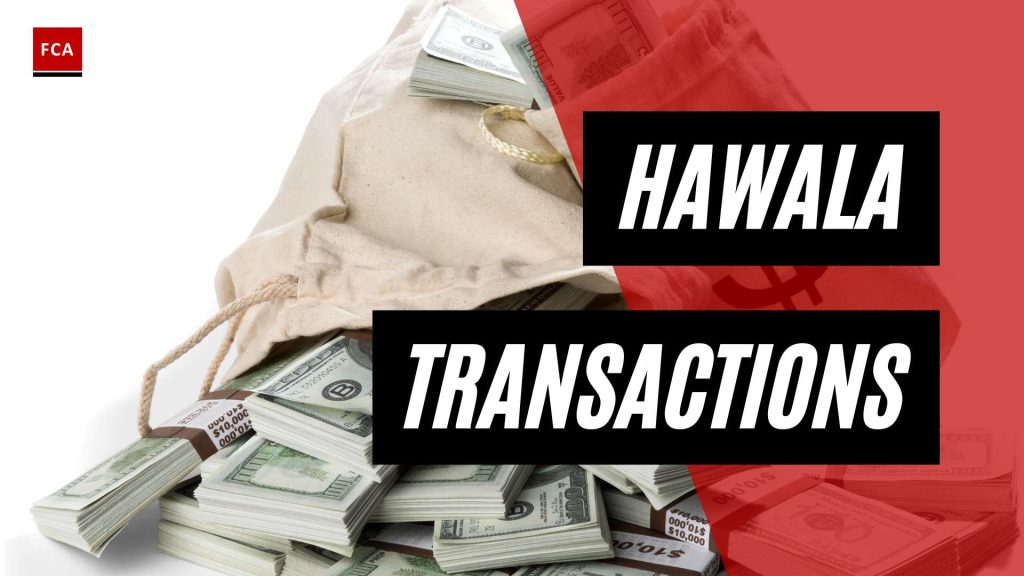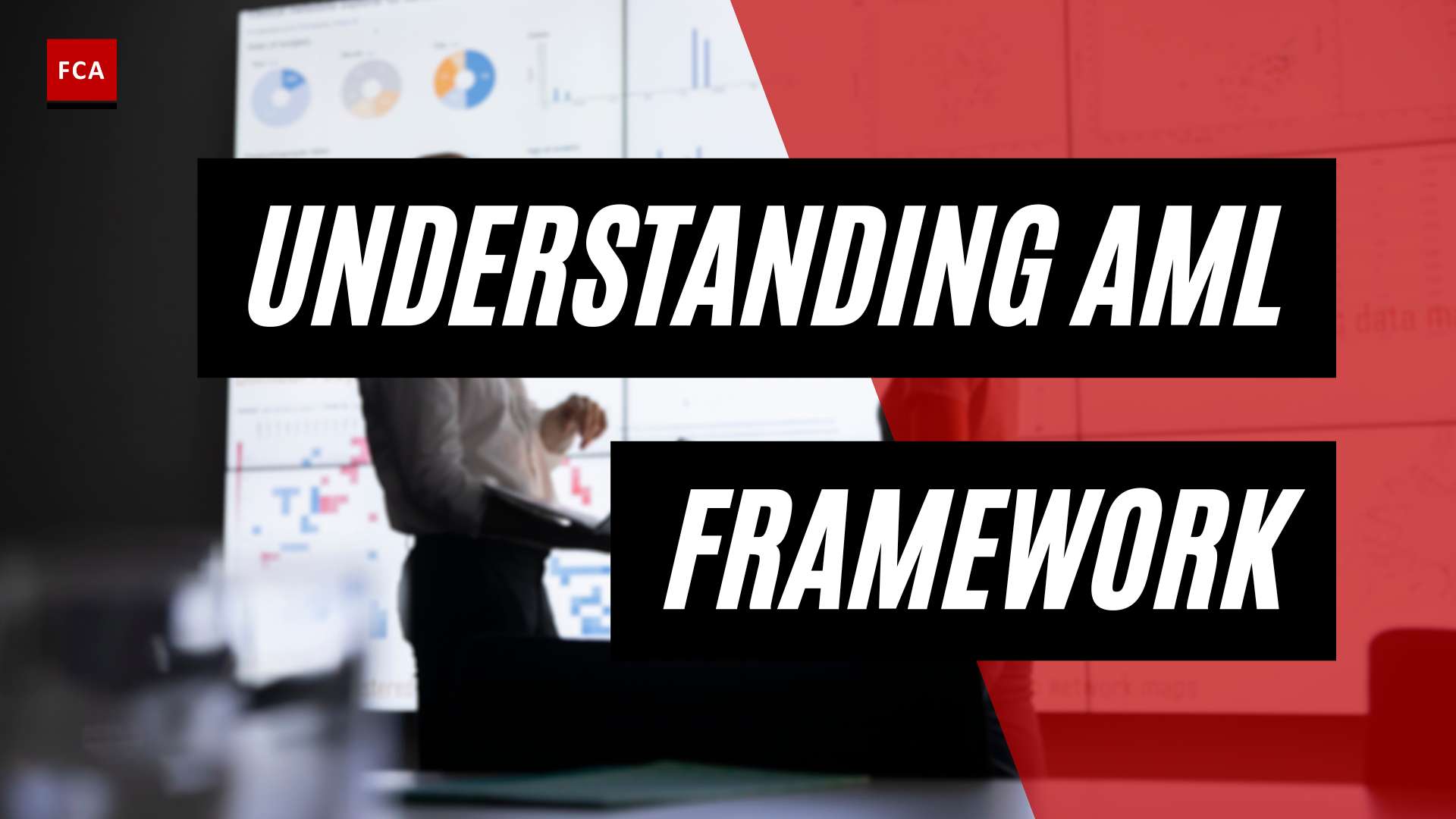Understanding Hawala and Informal Value Transfer Systems
Hawala, an integral part of informal value transfer systems, is a method of transferring money without any actual movement of cash. With its roots in ancient Islamic money-changing practices, hawala has gained prominence as an alternative remittance system used across various regions of the world.
What is Hawala?
Hawala is an informal system that enables the transfer of funds from one location to another through individuals known as hawaladars. Unlike traditional banking methods, hawala transactions do not involve the physical movement of money. Instead, funds are transferred based on trust and personal relationships, making it a popular choice for individuals seeking fast, efficient, and often cheaper transfers.
History and Origins of Hawala
The history of hawala can be traced back centuries, with its origins rooted in ancient Islamic practices. Over time, hawala networks have expanded and evolved, becoming prevalent in regions such as the Middle East, Africa, and Asia. These networks have gained recognition for their speed and lack of a paper trail, making them both beneficial and challenging for legal and illegal transactions alike.
Advantages of Hawala Transactions
Hawala transactions offer several advantages that have contributed to their popularity, particularly in communities where formal banking systems may be limited or inaccessible. Some key advantages include:
| Advantages of Hawala Transactions |
|---|
| Speedy transfers within hours |
| Lower costs compared to traditional banking methods |
| Enhanced security due to personal relationships between hawaladars and clients |
Hawala transactions are known for their swiftness, often facilitating transfers within hours. This speed is complemented by lower costs, as hawaladars typically charge lower fees than banks and other remittance companies due to minimal overhead expenses and the absence of regulatory costs. Additionally, the personal relationships between hawaladars and their clients contribute to the security of these transactions.
Disadvantages of Hawala Transactions
While hawala transactions offer certain advantages, there are also notable disadvantages associated with this informal system. These include:
| Disadvantages of Hawala Transactions |
|---|
| Lack of regulation and oversight |
| Limited recourse for clients in case of disputes |
| Association with illegal activities like money laundering and terrorist financing |
One of the primary concerns regarding hawala transactions is the lack of regulation and oversight. The absence of formal regulatory frameworks can create opportunities for fraud and scams, potentially leaving clients with limited recourse in case of disputes. Moreover, hawala has been associated with illegal activities, such as money laundering and terrorist financing, leading to increased scrutiny and legal action against hawala operators.
Understanding the intricacies of hawala and its advantages and disadvantages is essential for professionals working in compliance, risk management, anti-money laundering, and anti-financial crime. By comprehending the functioning of hawala networks and their implications, stakeholders can better identify and address potential risks associated with these informal value transfer systems.
The Functioning of Hawala Networks
To understand how hawala transactions work within hawala networks and informal value transfer systems, it is important to examine the key players involved, the process of hawala transactions, and the role of trust within the hawala system.
Key Players in Hawala Transactions
Hawala transactions are typically facilitated by individuals known as hawaladars or hawala brokers. These brokers act as intermediaries and play a crucial role in connecting individuals or entities seeking to transfer funds across borders. They operate within an extensive network of contacts, relying on trust and family connections to conduct business. While hawaladars can operate in various countries, the hawala system primarily operates in South Asia, Africa, and the Middle East, with connections in other regions as well.
How Hawala Transactions Work
In hawala transactions, an initial transaction occurs when a customer provides funds to a hawaladar in one country. The hawaladar then issues a code or authentication mechanism to the customer for future reference (IMF). The hawaladar, using their network of contacts, instructs a correspondent hawaladar in another country to deliver an equivalent amount in the local currency to a designated beneficiary. This process allows for the movement of funds without physical money transfers, relying on the trust and reputation of the hawaladars involved.
It is important to note that hawala transactions often occur without legal documentation, making it challenging to trace the flow of funds. Additionally, transactions are typically settled on a net basis, meaning that the actual transfer of funds occurs periodically, rather than for each individual transaction.
The Role of Trust in Hawala Systems
Trust is a fundamental element within hawala systems. The hawala system relies on established relationships and trust between hawaladars and their clients. This trust is built upon family connections, cultural ties, or long-standing business relationships. The reputation and integrity of the hawaladars play a crucial role in ensuring the smooth functioning of the system.
The role of trust within the hawala system allows for quick and efficient fund transfers, often bypassing traditional banking channels. However, this reliance on trust also poses challenges for regulatory authorities seeking to monitor and regulate hawala transactions. Due to the informal nature of the transactions and the absence of legal documentation, detecting and preventing illicit activities, such as hawala money laundering or terrorist financing, becomes increasingly difficult (Pideeco).
Understanding the functioning of hawala networks, the key players involved, the transaction process, and the role of trust is essential to comprehend the complexities and challenges associated with hawala systems. To combat illicit activities and ensure financial integrity, regulatory measures have been implemented to monitor and regulate these informal value transfer systems.
Hawala and Money Laundering
Hawala, along with other informal value transfer systems, has been associated with money laundering due to its lack of transparency and regulation. This has led to increased scrutiny and legal action against hawala operators (Investopedia). In this section, we will explore hawala as a tool for money laundering, the challenges in detecting hawala transactions, and the regulatory measures implemented to combat this issue.
Hawala as a Tool for Money Laundering
The very attributes that make hawala an attractive method for legitimate transfers, such as its speed, flexibility, and trust-based operation, also make it susceptible to exploitation for illicit activities like money laundering. The lack of paperwork and formal documentation in hawala transactions makes them difficult to trace, raising concerns about their potential misuse for money laundering purposes.
Money launderers may use hawala to obscure the origin or destination of funds, bypassing traditional banking channels and the scrutiny associated with them. By leveraging the trust-based relationships within hawala networks, illicit funds can be moved across borders with minimal record-keeping, making it challenging for authorities to identify and track suspicious transactions.
Challenges in Detecting Hawala Transactions
The opaque nature of hawala transactions poses significant challenges for detecting and preventing money laundering. Unlike traditional banking systems, hawala transfers often lack a clear paper trail, making it difficult for financial institutions and law enforcement agencies to identify and investigate suspicious activities.
The reliance on personal relationships and informal agreements within hawala networks further complicates detection efforts. The absence of formal documentation and reliance on trust-based relationships make it challenging for authorities to gather evidence and build cases against individuals involved in illicit hawala transactions (IMF).
Regulatory Measures Against Hawala
Recognizing the risks associated with hawala transactions, some countries have taken steps to regulate this system and enhance transparency and accountability. Regulatory measures include the implementation of licensing requirements, record-keeping obligations, and reporting standards for hawala operators.
These regulatory efforts aim to bring hawala transactions within the purview of anti-money laundering (AML) and counter-terrorism financing (CTF) frameworks, ensuring that they are subject to the same scrutiny and oversight as traditional financial channels. By enforcing these measures, authorities seek to mitigate the potential misuse of hawala for illicit activities while maintaining the legitimate uses of this system.
It is worth noting that while regulatory measures aim to address the risks associated with hawala transactions, achieving complete eradication of illicit activities within hawala networks remains a complex task. The balance between regulation and preserving the financial inclusion benefits that hawala provides to unbanked populations and areas with limited banking infrastructure poses ongoing challenges for regulators and compliance officers.
In the next section, we will explore hawala’s role in terrorist financing and the efforts made to combat this issue.
Hawala and Terrorist Financing
Hawala, an informal value transfer system, has been exploited for illicit purposes, including financing terrorism. This section explores the role of hawala in terrorist financing, efforts to combat hawala-related terrorist financing, and provides case studies of hawala networks used for such activities.
Hawala’s Role in Financing Terrorism
Due to its lack of transparency and regulation, hawala systems have faced scrutiny from authorities around the world for their potential involvement in money laundering and terrorist financing. Criminal and terrorist organizations utilize hawala networks to move funds globally while avoiding the traditional banking system’s scrutiny.
The decentralized nature of hawala transactions, coupled with the absence of a paper trail, makes it difficult to trace the source and destination of funds, enabling terrorist organizations to finance their operations clandestinely. The speed, efficiency, and global reach of hawala networks make them an attractive option for such illicit activities (Pideeco).
Efforts to Combat Hawala-Related Terrorist Financing
Recognizing the risks associated with hawala transactions, regulators and authorities have implemented various measures to combat hawala-related terrorist financing. These measures aim to enhance transparency, increase cooperation among financial institutions and law enforcement agencies, and implement stricter regulations and supervision of hawala operators.
International bodies, such as the Financial Action Task Force (FATF), have developed recommendations and guidelines for countries to combat money laundering and terrorist financing, including specific measures to address the risks posed by hawala systems. These measures include enhancing customer due diligence, reporting suspicious transactions, and strengthening cross-border cooperation (IMF).
Case Studies of Hawala Networks Used for Terrorist Financing
Numerous case studies have highlighted instances where hawala networks have been exploited for terrorist financing purposes. These cases demonstrate the complexity and challenges in tracking and dismantling these illicit networks.
One notable case is the use of hawala by the Taliban in Afghanistan. The Taliban relied on hawala brokers to transfer funds across borders, enabling them to finance their activities without leaving a clear financial trail. This allowed them to maintain the secrecy and anonymity necessary for their operations.
Another case involves the financing of extremist groups in Southeast Asia. Hawala networks were used to transfer funds between countries, providing a means for these groups to receive financial support discreetly. The lack of proper oversight and regulation in informal value transfer systems facilitated their activities.
These cases highlight the ongoing challenge of identifying and disrupting hawala networks involved in terrorist financing. Efforts to detect and prevent such activities require close collaboration between financial institutions, law enforcement agencies, and international organizations, as well as the implementation of robust regulatory frameworks to address the vulnerabilities of informal value transfer systems.
While hawala has legitimate uses, combating its misuse for terrorist financing remains a priority for authorities worldwide. Striking a balance between regulation and financial inclusion is crucial to ensure the integrity of the global financial system while addressing the needs of communities that rely on hawala for legitimate purposes.
The Legitimate Uses of Hawala
While hawala networks and other informal value transfer systems have gained notoriety for their association with illicit activities, it is important to recognize that these systems also serve legitimate purposes. Hawala transactions have been utilized for various legal and essential financial services. Let’s explore some of the legitimate uses of hawala.
Hawala for Remittances
One of the primary legitimate uses of hawala is for remittances. Hawala systems have provided an invaluable means for individuals, particularly emigrant workers, to transfer funds from one location to another, even across international borders. This enables them to support their families and loved ones in their home countries. The hawala system is often preferred due to its speed, lower costs, and security compared to traditional banking methods. The personal relationships between hawala brokers and their clients, who are often members of the same community, contribute to the secure and efficient transfer of funds.
Hawala as a Financial Service for Unbanked Populations
In areas where formal banking systems are inadequate or inaccessible, hawala serves as an essential financial service for unbanked populations. These individuals may not have access to traditional banking services due to factors such as geographical constraints, lack of necessary documentation, or limited financial infrastructure. Hawala offers a practical alternative, allowing people to engage in financial transactions, including money transfers and foreign exchange, without requiring a formal bank account. This allows for greater financial inclusion and access to financial services, particularly for those who would otherwise be excluded from the formal banking sector.
Hawala in Areas with Limited Banking Infrastructure
In regions with limited banking infrastructure, hawala systems provide a lifeline for conducting financial transactions. These areas may lack physical bank branches or have limited access to banking services. Hawala brokers, acting as intermediaries, facilitate the movement of funds between individuals and businesses, providing a reliable and efficient means of conducting financial transactions. The hawala system’s advantages, such as its speed, lower costs, and minimal bureaucratic processes, make it a convenient and accessible option in areas where formal banking services are limited or nonexistent.
By recognizing the legitimate uses of hawala, we can better understand its role in providing financial services to individuals and communities who may not have access to traditional banking systems. While regulatory measures are necessary to address concerns related to money laundering and terrorist financing, it is important to strike a balance between regulation and financial inclusion.
The Future of Hawala Systems
As we look to the future, hawala and other informal value transfer systems face evolving challenges and risks. However, technological innovations and the need for balancing regulation and financial inclusion provide opportunities for the transformation of these systems.
Evolving Challenges and Risks
Hawala networks and other informal value transfer systems continue to face challenges in terms of regulation and security. The lack of formal oversight and regulation creates vulnerabilities that can be exploited by illicit actors. This poses risks such as money laundering, terrorism financing, and fraud. While the advantages of hawala transactions, such as speed, lower costs, and security, are recognized, the disadvantages, including the lack of regulation and limited recourse, cannot be ignored.
Efforts to address these challenges involve enhancing international cooperation and coordination among regulatory authorities, law enforcement agencies, and financial institutions. Cooperation is crucial in sharing information, intelligence, and best practices to detect and prevent illicit activities associated with hawala transactions. Strengthening anti-money laundering and counter-terrorism financing measures is a priority to mitigate the risks posed by these informal systems.
Technological Innovations in Informal Value Transfer Systems
Technological advancements have the potential to revolutionize informal value transfer systems, including hawala. The emergence of digital platforms and mobile-based applications has introduced new possibilities for streamlining and formalizing these systems.
Mobile money services, for example, provide a convenient and accessible way for individuals to transfer funds electronically. These services can be utilized to bridge the gap between formal financial institutions and the unbanked population, offering a regulated alternative to traditional hawala transactions. By leveraging digital technologies, these platforms can enhance transaction security, traceability, and compliance with regulatory requirements.
Blockchain technology also holds promise for transforming informal value transfer systems. Its decentralized and transparent nature can provide a secure and tamper-proof record of transactions. By implementing blockchain-based solutions, it becomes possible to enhance the integrity and traceability of hawala transactions while addressing regulatory concerns.
Balancing Regulation and Financial Inclusion
One of the key challenges in the future of hawala systems lies in striking the right balance between regulation and financial inclusion. While stricter regulations are necessary to combat illicit activities, it is crucial to avoid stifling innovation and excluding marginalized populations from accessing financial services.
Regulatory frameworks need to be developed and implemented in a way that encourages compliance with anti-money laundering and counter-terrorism financing measures, while also considering the unique characteristics and needs of informal value transfer systems. Collaboration between regulators, financial institutions, and technology providers is essential to establish effective regulatory frameworks that balance the objectives of security, transparency, and financial inclusion.
Hawala systems can play a role in facilitating remittances for individuals in areas with limited banking infrastructure and serve as a financial service for the unbanked population. By embracing technological innovations and adopting appropriate regulatory measures, it is possible to harness the potential of these systems while mitigating the associated risks.
The future of hawala systems will depend on the collaborative efforts of stakeholders to adapt to evolving challenges, leverage technological advancements, and strike a balance between regulation and financial inclusion. By doing so, we can transform these informal value transfer systems into more secure, regulated, and inclusive channels for financial transactions.









